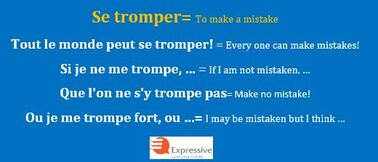Why Become a Bilingual Professional1. Enhanced Career Opportunities: Canada is a bilingual country with English and French as its official languages. Bilingualism is not only a source of pride but also a significant advantage in the job market. Many industries, such as government, international relations, customer service, tourism, and education, place a high value on bilingual candidates. By mastering both official languages, you position yourself as an attractive candidate for a wider range of job opportunities, both nationally and internationally.
2. Increased Employability: In a competitive job market, having an additional language on your resume can set you apart from other candidates. Employers value bilingual professionals not only for their ability to engage with a broader clientele but also for their adaptability and cognitive flexibility. Being bilingual demonstrates your capacity to learn and adapt to new challenges, a trait highly sought after in today's rapidly changing work environment. 3. Improved Communication Skills: Bilingualism sharpens your communication skills in both your native language and the second language you learn. This heightened communication ability extends beyond words; it encompasses understanding cultural nuances, nonverbal cues, and empathy. These skills are not only valuable in professional settings but also in personal relationships, making you a more effective communicator overall. 4. Cultural Sensitivity and Global Perspective: Learning a second language often involves immersing yourself in the culture associated with that language. This exposure nurtures cultural sensitivity, enabling you to interact respectfully with people from diverse backgrounds. It also provides you with a broader worldview, allowing you to understand and appreciate different perspectives, an invaluable asset in our increasingly globalized society. 5. Networking Opportunities: Bilingualism can expand your social and professional circles. You can connect with individuals from different linguistic and cultural backgrounds, opening doors to collaborations, partnerships, and friendships that you might not have had access to otherwise. These connections can lead to mentorship, career growth, and even entrepreneurial ventures. 6. Higher Earning Potential: Research has shown that bilingual professionals often command higher salaries than their monolingual counterparts. This is particularly true in fields where bilingualism is crucial, such as translation, interpretation, and international business. The specialized skill set you bring to the table makes you a valuable asset, which can translate into a more competitive compensation package. 7. Personal Cognitive Benefits: Bilingualism has been linked to cognitive advantages, such as improved memory, multitasking ability, problem-solving skills, and better decision-making. Learning and using two languages regularly exercises your brain, contributing to its overall health and longevity. 8. Cultural Integration and Inclusion: For immigrants to Canada, learning one of the official languages is a crucial step toward successful integration. Becoming bilingual not only helps newcomers adapt more easily to their new environment but also contributes to a sense of belonging and inclusion within Canadian society. Conclusion: Becoming a bilingual professional in Canada is not just about learning a new language; it's about embracing a new way of thinking, communicating, and connecting with others. The benefits go beyond the workplace, touching various aspects of your personal and professional life. In a multicultural country like Canada, where diversity is celebrated, bilingualism is not just an advantage—it's a powerful tool that can open doors and shape a more fulfilling and successful career journey. So, whether you're a recent graduate or a seasoned professional, consider embarking on the bilingual journey to unlock a world of opportunities in the True North.
0 Comments
|
|






